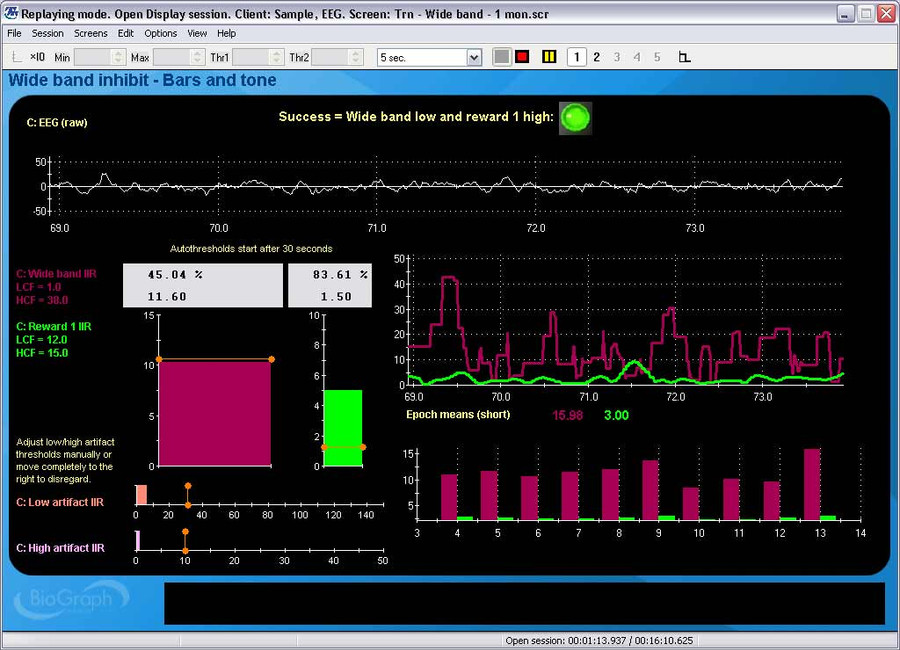Heart Rate Variability Biofeedback (HRV) allows you to gain control over your body’s responses to stress. It is an evidence-based treatment during which you are trained to improve your mental and physical health by using signals from your own body.
HRV is a form of cardiorespiratory feedback training that focus on the strengthening of the homeostasis of the baroreceptors and has shown effect on the vagal tone that has a pathway to the frontal cortical areas calming the “thinking brain”. Respiratory Sinus Arrhythmia (RSA) biofeedback or Resonant Frequency training focus on feeding back beat by beat heart rate data during slow breathing when the client tries to maximize the wave like curve of peaks and valleys and match the RSA heart rate patterns. RSA is the heart pattern that occurs when heart rate increases during inhalation and decreases during exhalation.
By variability we mean changes in the interval or distance between one beat of the heart and the next. The interbeat interval (IBI) is the time between one R-wave (or heart beat) and the next, in milliseconds. The IBI is highly variable within any given time period. Multiple biological rhythms overlay one another to produce the resultant pattern of variability. Interbeat interval variations, or heart rate variability, have relevance for physical, emotional, and mental function. Many people confuse Heart Rate with Heart Rate Variability. The human heart is a bio-electrical pump beating at an ever changing rate: it is not like a clock that beats at a steady, unchanging rate. This variability in heart rate is an adaptive quality in a healthy body.

Biofeedback therapy gives you millisecond accurate mirroring of what your heart is communicating to the rest of your body, eventually allowing you to gain control over how your body reacts to stress and building on your resilience to stress.
Through state-of-the-art biofeedback training clients can realize multiple benefits including:
A mixture of traditional psychotherapy and biofeedback therapy can help you to achieve optimal performance in health, career and relationships. Combining HRV with other stress management strategies enable the athlete, high performer to maintain optimal arousal for longer with more effective energy regulation and better cognitive performance under pressure.
Sessions last 45-60 minutes and the techniques are non-evasive, allowing you to improve control over how you react to internal and external stressors. Generally clients are able to incorporate HRV effectively within 10 -15 sessions.